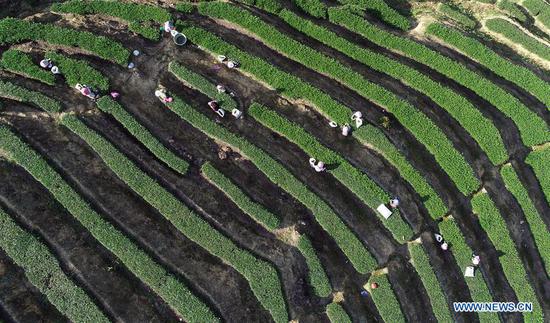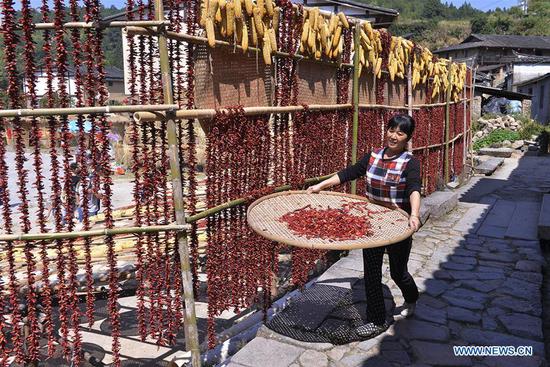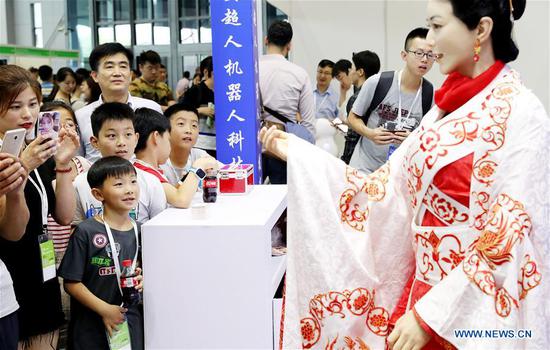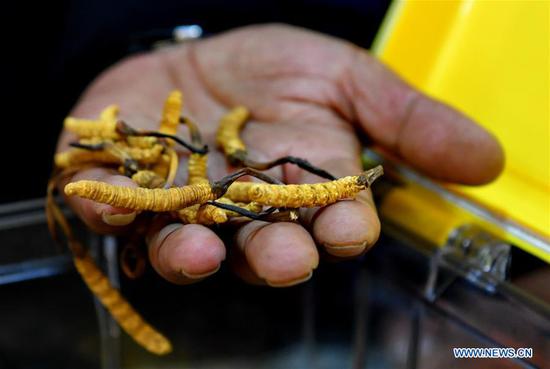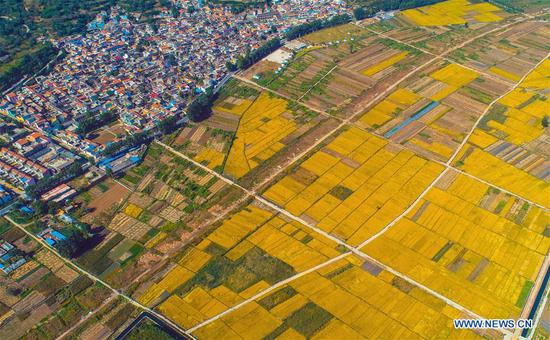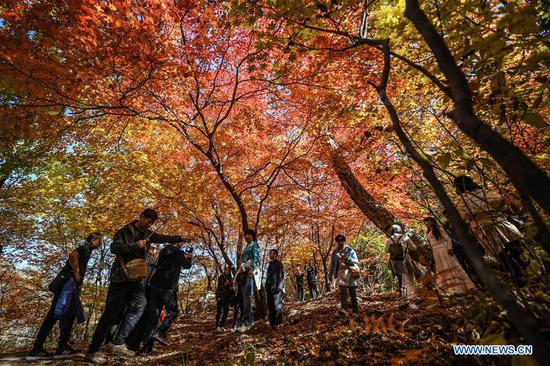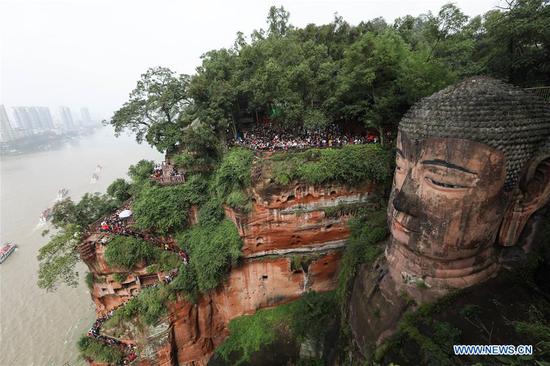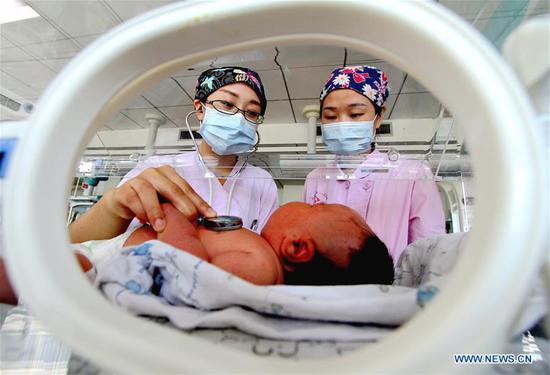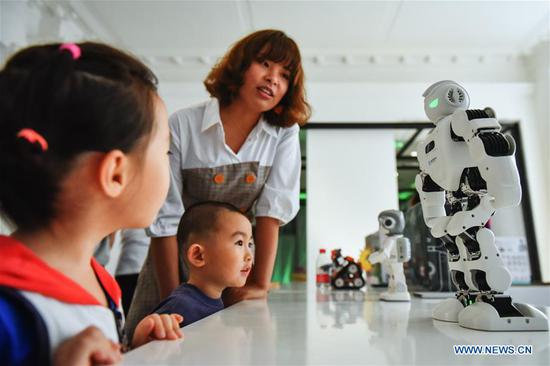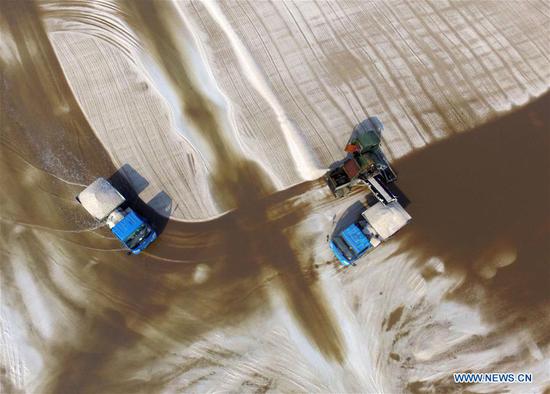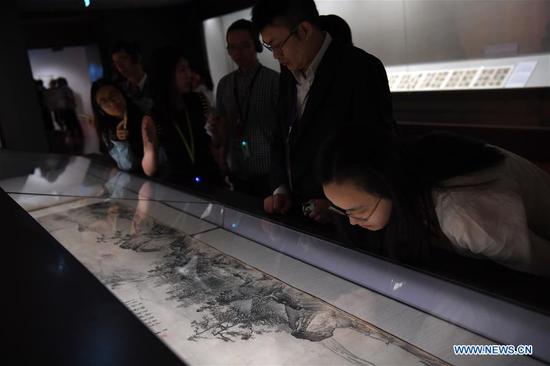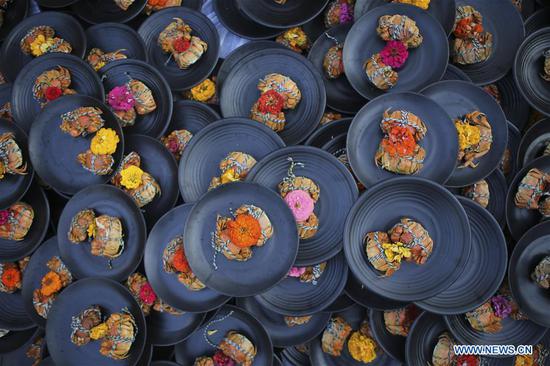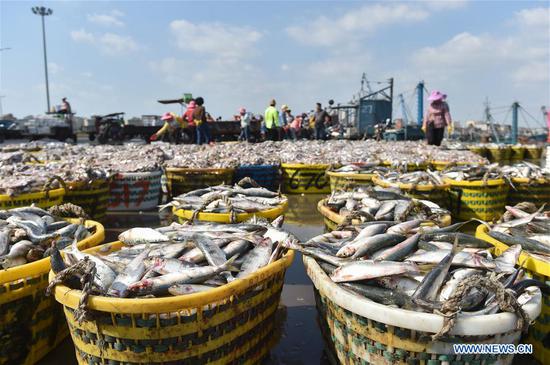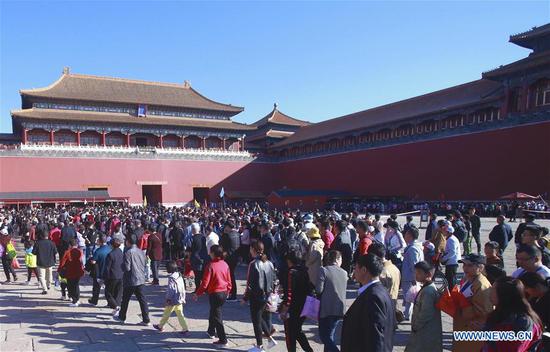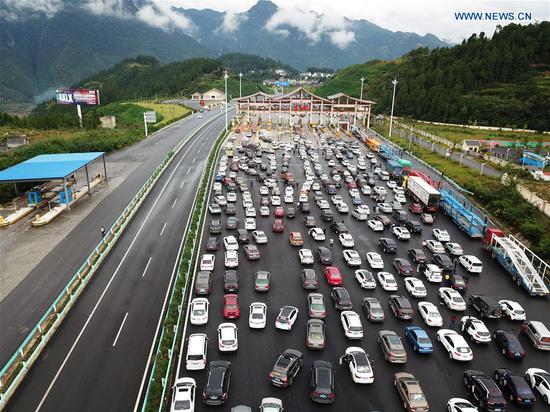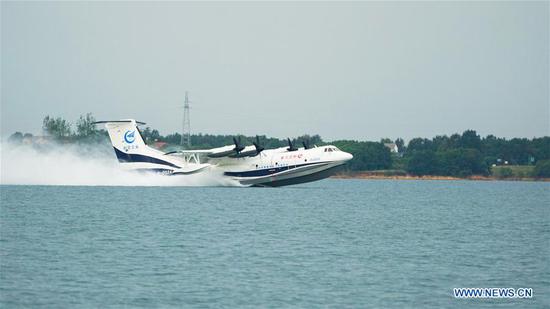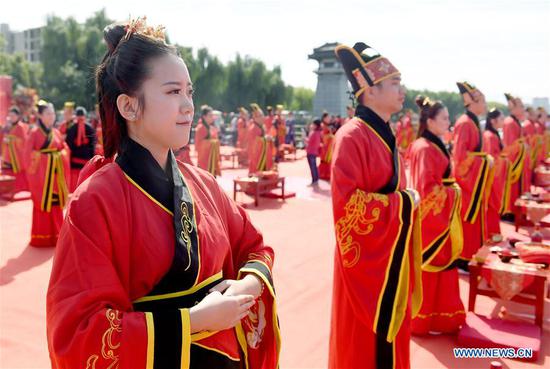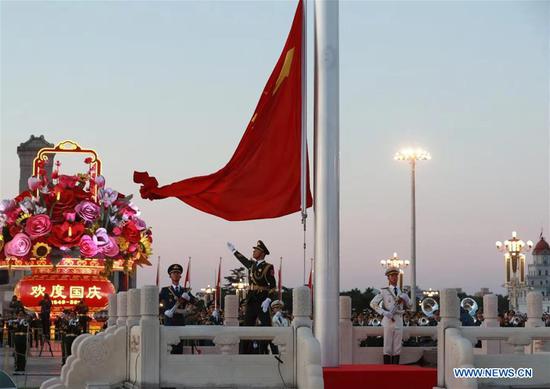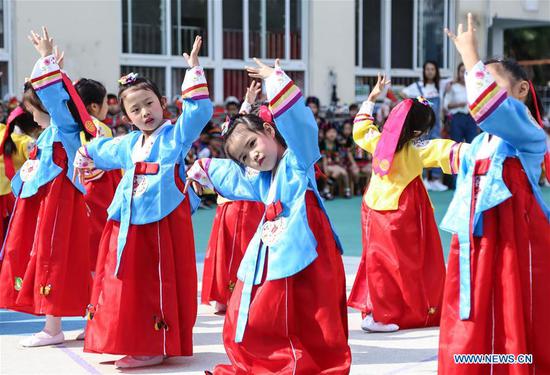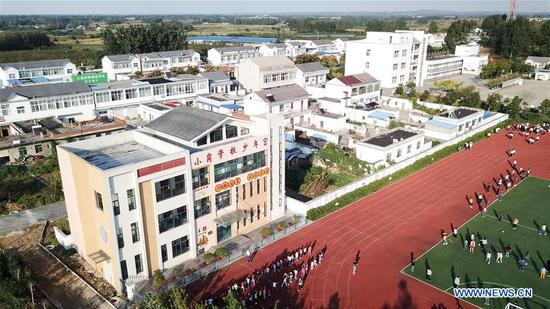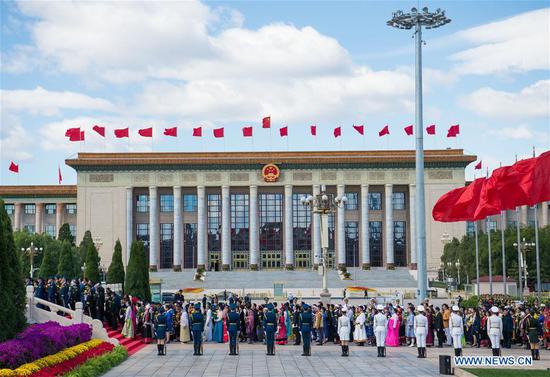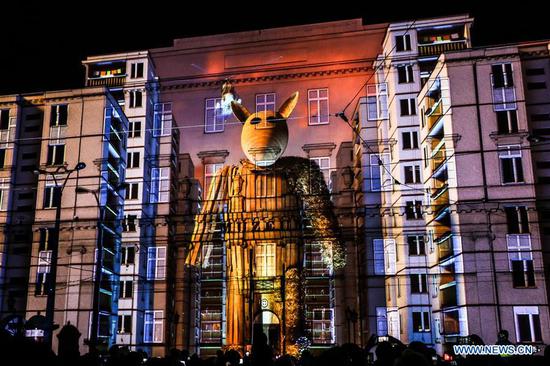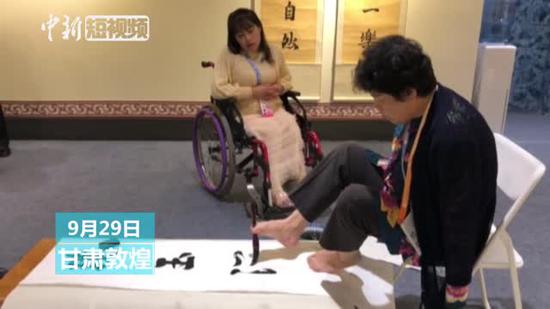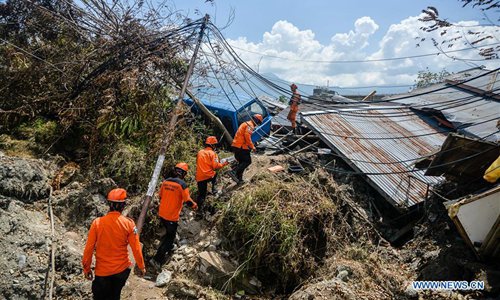
People search for victims on the debris of houses in Petobo village after earthquake and tsunami in Central Sulawesi, Indonesia, on Oct. 2, 2018. (Xinhua/Iqbal Lubis)
"One hundred and fifty kilograms of rice, 25 kilograms of white sugar. This is what we are donating to this homeless village camp."
Pippa, a private volunteer from China, and four or five of his local Indonesian partners distribute relief supplies at mountain refugee camps on the outskirts of Palu.
"I brought 50,000 yuan ($7,280) in cash from China, and raised 20,000 yuan through various channels to buy these relief supplies. But after I came to Palu, I found that what I had brought was not enough," he said.
The pickup truck was loaded with relief supplies they bought in Poso, a city less than 120 kilometers away from Palu, including gasoline, water, food, tents and blankets that were urgently needed in the disaster area.
They are hopping from village to village and distributing relief supplies to the victims.
On September 28, just after the Mid-Autumn Festival and most of Chinese people are looking forward to the Chinese National Day holidays, a 7.5-magnitude earthquake in Central Sulawesi of Indonesia and the devastating tsunami that followed killed 1,571 people and left a large trail of destruction.
As one of the first Chinese volunteers to arrive in Palu, Pippa delivered not only supplies but also the care and friendship of Chinese.
Zuifiah, president of Fatayat in Center Sulawesi, a young women's section of the Nahdlatul Ulama (NU), Indonesia's traditionalist and largest Muslim organization, seized the hand of Pippa. "Thank you very much. You are heroes from China and the benefactor of these victims," she said.
Concerned about aftershocks and a tsunami, Zuifiah led some of the homeless victims to the mountain for temporary shelter. The sea washed away their homes and the soil buried their houses, but the Chinese rescue team sent them warmth.
Local resident Suji told the Global Times the Indonesian government accepted international help but getting to enter the disaster area was not easy to handle. The international rescue personnel that could enter the disaster area were limited.
"I have seen many Chinese volunteers here and they like doing things quietly." Suji said that many of the victims even learned to say "thank you" in Chinese because they were helped by the Chinese volunteers.
China's Red Cross Society offered Indonesia $200,000 in emergency relief, the Chinese Embassy in Jakarta said.
Liang Fangfang, a Chinese volunteer in Jakarta, said that many Chinese rescue teams and volunteers have arrived in Jakarta to wait for permission to enter Palu and other disaster areas. Sources from the China international development cooperation agency said official aid is being organized and is expected to start around October 9.
Some Chinese companies located in Indonesia have taken action. Indonesian Morowali Industrial Park (IMIP), an Industrial park set up by China and Indonesia in Sulawesi Island, immediately organized a group to carry out emergency relief, including donating food, water and other relief supplies, and dispatched two medical teams. Twenty-three medical staffers and two ambulances, three engineering vehicles and security personnel raised nearly 200,000 yuan and put together 800 emergency kits containing food and daily necessities.
Indonesian media reports said three vehicles arranged by IMIP were airlifted to the disaster area. They played an important role in rescuing those trapped in ruins. Industrial park staff told reporters that IMIP is ready to carry out follow-up rescue operations.
ZTE, a Chinese communications company, also created an earthquake emergency support team, mobilized engineering and technical personnel to repair communications facilities. On the night of September 28, the first rescue team rushed to the core computer room of the earthquake zone customer area. After more than 20 hours, they covered hundreds of sites.
As of October 4, ZTE has dispatched five batches of engineering and technical personnel. Thousands of sites have been repaired. ZTE said it would send more technical staff on October 6 and 7.
China's CSCEC Road and Bridge Group also provides assistance in the form of instant noodles, medicine, mineral water and other food and clothing needs through the Sam Ratulangi Airport Disaster Relief Post. The goods were delivered directly by Song Jingfei, the project manager of PT Sino Road and Bridge.
"We are sorry and concerned about the earthquake and tsunami that hit the Palu area and its surroundings. Hopefully we did what we could to help ease the burden of the survivors," Song said.










